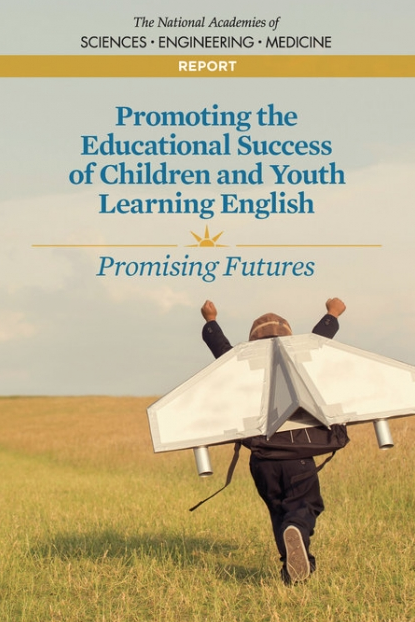By the Gevirtz School — Graduate School of Education at UCSB
 Richard Durán of UC Santa Barbara’s Gevirtz School was a member of the committee that conducted the study and wrote the report titled Promoting the Educational Success of Children and Youth Learning English: Promising Futures for the National Academies of Sciences, Engineering, and Medicine.
Richard Durán of UC Santa Barbara’s Gevirtz School was a member of the committee that conducted the study and wrote the report titled Promoting the Educational Success of Children and Youth Learning English: Promising Futures for the National Academies of Sciences, Engineering, and Medicine.
The new 2017 report addresses the achievement gap between English learners (ELs)—who make up over 9% of K-12 students—and their peers, citing a lack of adequate instruction and support to these students. Underprepared early education providers and the variability across state certification requirements for teachers are contributors to ELs falling behind. The authors suggest more comprehensive and consistent administration of training and preparation work for everyone from teachers to therapists to better equip these groups for fostering success among English language learners. The committee assessed a diverse group of ELs and dual-language learners (DLLs) including those with disabilities, as well as American Indian and Alaskan Native students. Overall, the comprehensive study examines the influences on educational success of ELs and DLLs, including the cognitive benefits of learning two languages for students.
The study, sponsored by the U.S. Departments of Education and Health and Human Services, the Foundation for Child Development, the Heising-Simons Foundation, and the McKnight Foundation, outlines a further research agenda highlighting policy, proficiency and more and will have a lasting impact on the field.
Professor Durán’s research interests are centered on literacy learning, assessment, and design of interventions serving of persons from varied language and cultural backgrounds. A member of the Gevirtz School’s Department of Education, professor Durán has carried out a research program investigating learning and culture itself as socially constructed. This work has been heavily influenced by the emergence of cultural psychology as a field drawing on the work of the cultural historical or Vygotskian views of cognitive development and activity theory. His research teams have investigated classroom interaction in multilingual settings and how students’ self-awareness of their performance coupled with teacher’s formative assessments promotes student learning and engagement as a dialogic process.
In other research in collaboration with Prof. Betsy Brenner, Dr. Durán and the research team is investigating immigrant children’s and teenagers’ literacy development and engagement in community science projects in after-school learning settings with support from the UC LINKS after-school computer club network. More recently, Prof. Durán has begun research on STEM learning strategies to familiarize youths in these settings with fabrication and use of sensor based technologies to explore the physical and chemical properties of the world around them and how these technologies can be used for local everyday problem solving, while at the same time encouraging youths to pursue academic course work preparing for college and beyond.
